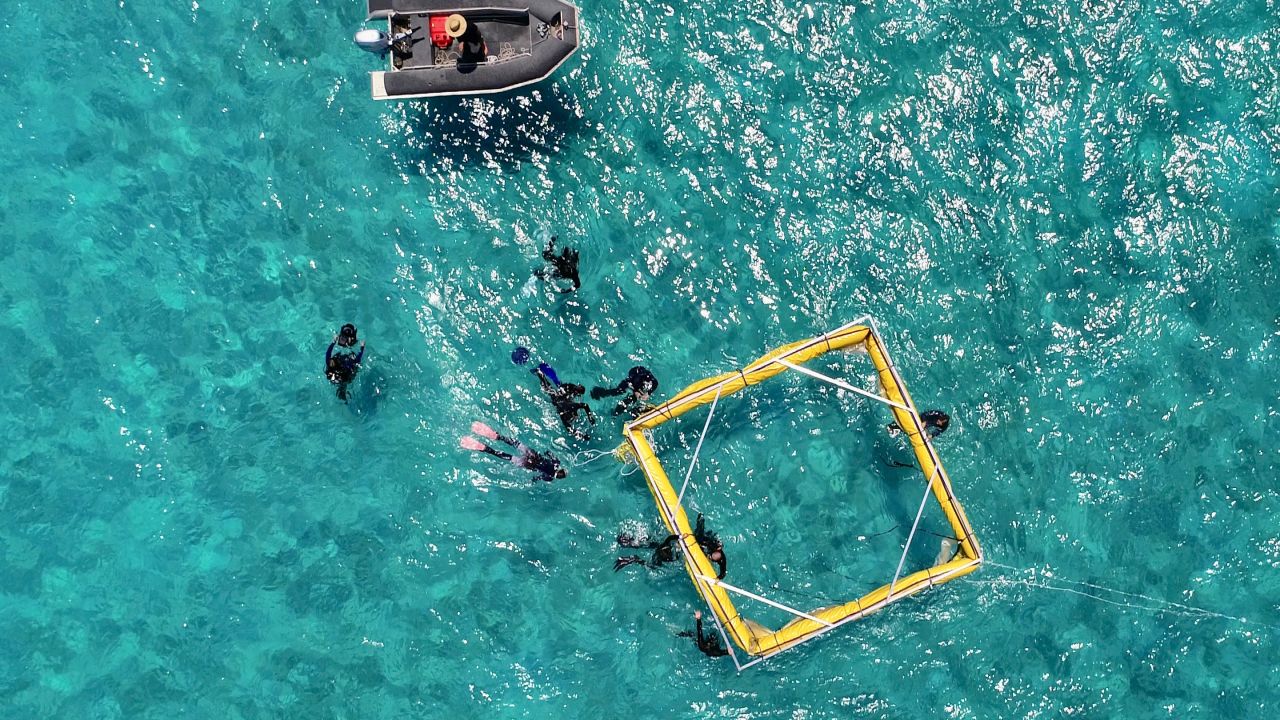Media Release ·
The Great Barrier Reef is under threat - this is how we're saving it

The Great Barrier Reef Foundation will continue working tirelessly to develop bold, innovative new solutions to save our Reef.
The UNESCO World Heritage Committee has voted against adding the Great Barrier Reef to its In Danger list, instead agreeing to revise the decision next year noting serious concerns about the impacts of climate change and poor water quality.
Great Barrier Reef Foundation Managing Director Anna Marsden said the concerns raised by UNESCO and the World Heritage Committee confirm what science has been telling us for some time - that climate change is the greatest threat not only to our Reef but to coral reefs globally.
“Together, we must take bold action to reduce greenhouse gas emissions, whilst also urgently building the resilience of reefs against the impacts of global warming that are happening right now,” Ms Marsden said.
“The warnings of insufficient global action on climate change have grown louder, the evidence stronger and the consequences of not dramatically escalating our response more dire.
“We know that coral reefs and their communities are on the front line, we know current climate change commitments won’t get us where we need to go and we know this is the critical decade in which to act with urgency.
“Through combining the rapid acceleration of both climate mitigation and adaptation, we can change the current trajectory provided we all work together.
“We must also significantly improve water quality by reducing the amount of nitrogen, pesticides and sediment that flow into the Reef from our waterways.
“The science is clearly telling us we have 10 years to save this irreplaceable ecosystem if we act now. Doing nothing is unthinkable and falling short is not an option.”
Reef Recovery 2030 is the Foundation’s landmark ambitious response to this call to action. Accelerating and building on the work the Foundation has been leading for 20 years, this is a 10-year collective effort to save the Great Barrier Reef and support global coral reef conservation.
Led by the Great Barrier Reef Foundation, it brings together the world’s leading coral reef scientists, Australian Government, reef managers, First Nations people and local communities to boost the resilience of these unique reef ecosystems and the people that rely on them.
This will be achieved through five initiatives including the world’s largest program to help a significant ecosystem survive climate change, the Reef Restoration and Adaptation Program (RRAP), which will develop, scale-up and deploy known and radically new interventions and technologies to help coral reefs survive.
RRAP is a partnership between the Australian Institute of Marine Science, the Great Barrier Reef Foundation, CSIRO, The University of Queensland, QUT, Southern Cross University and James Cook University. The program is partially funded by the partnership between the Australian Government’s Reef Trust and the Great Barrier Reef Foundation.
Reef Recovery 2030 will also take bold action on climate change, improve water quality, restore reef islands & coasts and build the resilience of reef communities.
The campaign has been endorsed as a flagship action of the United Nations’ Decade of Ocean Science for Sustainable Development – a global initiative launched to support innovations that will boost the health, sustainability and resilience of our oceans by 2030.
“Reef Recovery 2030 will not only provide hope for the future of coral reefs and the millions of people that rely on them, but will also create the step change that is urgently needed,” Ms Marsden said.
“Our goals are ambitious but we’re confident we will achieve them. Already we’re delivering over 200 Reef-saving projects in collaboration with more than 300 partners. We’re working with more than 1,200 farmers to improve water quality and are on track to reduce the amount of sediment polluting our Reef by 463,000 tonnes annually – that’s enough to fill more than 100 Olympic-sized swimming pools every year.
“We’re also finding ways to reduce emissions and are investing in blue carbon ecosystems such as mangroves and seagrasses, which clean the air and provide critical reef habitats.”
Ms Marsden said the enormity of the task calls for an end to working as individuals and added: “Saving the Reef is a huge task, but we mustn’t lose hope. Without hope there is no action.”
For more information on the UNESCO decision and Reef Recovery 2030 click here.




